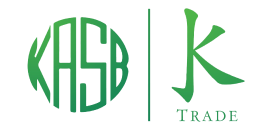Investing in Pakistan Stock Exchange paves way for an individual to increase their capital. The Stock Market is a part of the Capital Market. A Capital market is any marketplace where financial securities or assets are exchanged. A stock market is a specific category that falls under the capital market. A stock market deals with the exchange of shares issued by a Company. Issued shares are available to the general public to either be bought or sold. Trading on the Stock Exchange is one of the best ways to invest money in Pakistan.
What is a Brokerage Account?
The first step to invest in Pakistan Stock Exchange is to open a brokerage account. It is opened with a reliable brokerage house of the investor’s choice. It is a financial account opened to buy and sell securities like mutual funds, bonds and stocks. Money can easily be deposited into or withdrawn from a brokerage account.
How Do Brokerage Accounts Work?
An investor is first required to deposit funds with a registered brokerage firm. Different brokerage houses have numerous ways to operate. They may have different fee structures and documentation processes. Fee may include a specific percentage of commission per transaction. Brokerage accounts can be managed through brokers or through online trading platforms. One such platform is the KTrade App. Applications such as KTrade allow an investor to execute buying and selling transactions with just a few clicks. The client is notified of their transactions and monthly statements.
Types of Brokerage Accounts
An investor can have more than a single brokerage account at a time. There are 6 main types of brokerage accounts. Each type of brokerage account aims to serve a separate purpose. An investor is advised to invest in a brokerage account that best suits their needs.
1. Standard Brokerage Account
A standard brokerage firm permits an investor to deposit or withdraw cash at any time. An investor can conveniently gain access to a variety of investments through this account. It is also the most common type of brokerage account. Professionals can execute transactions on behalf of an investor after with their consent.
2. Margin Account
A margin account involves a broker lending cash to an investor. The investor can then proceed to buy securities. These securities are then kept as equivalent to a collateral for the loan given to the investor. Profits can be significantly increased due to the use of leverage. Financial leverage refers to borrowed funds used to amplify return on investment. The fee structure includes interest on borrowed funds when trading stocks.
3. Custodial Account
A custodial account is a savings account maintained for a child under the age of 18, by an adult. They do not have penalties on withdrawal and do not have a deposit limit. Funds in this account are transferred to the juvenile when they reach the state defined age of an adult.
4. Retirement Account
A retirement account is a type of money market account. A money market involves short-term trading debt investments with a relatively low return on investment. This account is more liquid and stable than most brokerage accounts, regardless of how the stock market is performing. Withdrawal however, is not as easy as it is in other brokerage account. To withdraw money, the investor needs to read a particular age, nearing retirement, otherwise they may be penalized.
5. Education Individual Retirement Account (IRA)
An Education IRA is a type of retirement account. Individuals can deposit money in this account pertaining to a child’s education. The child is to be under the age of 18. It is a tax-advantaged savings account which means it is exempt from taxation.
6. Discretionary Account
A discretionary account is similar to a standard brokerage account. However, this account permits a professional to make decisions on behalf of an investor without their consent. These professionals use their specialized knowledge and a carefully planned out investment approach when executing transactions.
Brokerage Account Fees & Commissions
The fee and commission structure vary from one brokerage firm to another. It is charged by brokers in return for the transactions executed for investors through them. Traditional brokers have higher fee structures and commission rates as compared to online brokers. KTrade, which is an online trading platform, has a lower fee requirement whereas other traditional brokers may charge a specific amount for almost the same services. Professionals maintaining discretionary accounts charge a fee for making an investor’s investing decisions and executing transactions on their behalf. Some brokers also charge a trivial amount paid as maintenance for the investor’s account. Most brokers also charge commission. Commission is a fee that is charged whenever an investor makes a buy or sell transaction. Brokers have different minimum account balance requirements. Investors must fulfill this requirement to avoid being charged a supplementary fee.
Brokerage Account Features
It is important for an investor to be well-acquainted with the features of a brokerage firm. A brokerage account does not have withdrawal or deposit limits. An investor may or may not make capital gains on their investment. An investor can gain access to research and tools used to implement investment decisions.
How to Choose a Brokerage Account Provider
To choose a suitable brokerage account, an investor has to be sure of their investment plans.
This includes knowing whether they want to incur long-term savings or gains or invest for short-term gains. If an investor does not need to avail those extra services, then there is no need to delve into a brokerage firm of the sort. An investor should ensure that the brokerage firm they are considering is reliable.
A legitimate brokerage firm will be licensed and registered as a Securities Broker with the SECP. Traders are required to have the same license. Another factor to take into account is the minimum account balance. Many brokers will not have a minimum account balance requirement. An investor should also base their decision off of how professional advisors offer their advice.
Professionals should offer elaborate advice, easy to interpret for the investor. An investor is advised to consider a brokerage with wide access to research material. Access to research material positively influences investment decisions. Brokerage firms that have online trading platforms and have swift customer services are also two significant factors to consider. Online trading platforms enable an investor to trade themselves rather than having to rely on an investor to execute transactions for them.
How to open a brokerage account
Once an investor has decided what type of brokerage account to open, they will then have to fill out an application. These applications require the investor’s basic information such as address, employment status etc. An investor is then required to transfer funds into their account. The process is fairly simple and can be done online for most brokerages. Once funds are transferred, the investor can start trading as soon as the funds are approved by the firm.
How to Fund Your Brokerage Account
An investor is advised to have online access to their banking information. This makes actions such as deposits and withdrawals more convenient. The brokerage firm chosen, will then guide the investor on how to form a connection between their bank account and their brokerage account. The investor will then be able to transfer funds into their brokerage account. The brokerage firm will also guide the investor regarding due process that follows the bank transfer. In the case of a physical cheque deposit, the investor can seek help from the firm’s customer representative services. The investor should also ensure that their brokerage account has enough funds to execute a transaction and cover its fee charges.
FAQs
What is the best brokerage account for beginners?
The best brokerage account for a beginner is one that provides easy to interpret investor education. Investor education can be in the form of blogs, educational videos or seminars. Further, it should have an easily operable web design and mobile application. One such brokerage firm is KTrade Securities Limited. The KTrade app gives the investor access to virtual trading. A Virtual trading platform is a stock market simulator that uses the broker’s actual trading platform to help a new investor become more financially aware. It helps familiarize them with the app’s features and to trade with virtual money deposited into their virtual accounts.
Is there a minimum amount to open a brokerage account?
Brokerage firms all over the world have different initial minimum amount requirements. Brokerage firms in Pakistan however, have lower deposit requirements. KTrade Securities Limited for instance has a minimum amount requirement of just Rs.5000.
Can I take money out of my brokerage account?
Brokerage accounts are fairly liquid. Hence, it is fairly simple for an investor to take money out of their brokerage account. Some brokerage accounts do not charge a withdrawal fee, however, others might charge the investor a specific amount for doing so.

